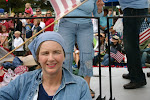Vive Le Ant: 1985 Adam Ant Interview
In 1985 an editor at Pulse! (remember that Tower Records magazine?) told me to send him about 400 words, two or three paragraphs, on Adam Ant’s new record. I was pitching an interview, maybe he thought I was pitching a record review. He may have thought, too, that I’d never get an interview and he’d never hear from me again. I talked to Adam for an hour at the Epic office (he liked talking to me so much, he interrupted my interview for another and then returned to mine) but I somehow edited what he said to fit the assignment. The resulting article was dutifully turned in but never published. Neither did any publication ever ask me to interview any star other than Adam Ant. (I interviewed him three times over a few years.) Our first conversation finally sees publication for the first time in any format below:
Perhaps
Vive Le Rock, Adam Ant’s brand-new Epic release, will get people listening and not just looking. Although the business side of music tends to categorize him as just another pretty face, many normal adult women appreciate his unique mix of musical influences and British-Gypsy looks, while men often appreciate his unique mix of musical influences and heroic-glam attitude.
Vive Le Rock (“Long Live Rock” in French) is rock for anyone—and I ask him about it while pondering while his eyes are sky-blue, not the washed-out tone that tends to occur in his photos.
“It’s quite action-packed and it’s quite aggressive,” he says with his quietly super British ‘tude. Then he adds, cheekily, “It’s a kick-ass record.”
He continues, “I wanted to do something that had a band feel, a bit nitty-gritty and songs that could be produced live very easily with a very small line-up, four guys.” (Those four guys are Adam, Marco Pirroni on guitar, Chris “De Niro” Constantinou on bass guitar, and Bogdan “Count” Wiczling on drums.)
Also along on
Vive is Tony Viscounti, who produced some of David Bowie’s and T. Rex’s most acclaimed works. About Viscounti, Adam says, “He’s a great guitar producer… [I] wanted a guitar sound. Everybody’s messin’ around with synthesizers!”
To what he wants to accomplish with this album, his sixth, he gives an answer he’s given about previous products, reflecting a singularity of purpose, “You’re going to create something that’s going to captivate people’s attention—the way
Kings of the Wild Frontier [his first American album and first British best-seller] did.” Then he adds, “The idea is that you can still have hunger, you can still want to produce work that’s hard-edged and still has some kind of style.”
What was the first record to capture his attention? “
Magical Mystery Tour—the first one I actually went out and bought with my own money. It was an EP with a wonderful jacket and I didn’t understand any of it.” That was about 1968 when he was about 13. However, he’s not that big a Beatle fan. “Bein’ in England in the sixties, everybody, whether they admit it or not, bought those records,” he explains.
He admits his appreciation for singers that rockers often snicker about. He remembers how his mother played records by Perry Como, “hours of Nat King Cole,” and Frank Sinatra, while his stepfather was a country music nut. Some rock besides the Beatles infiltrated his childhood, of course. His mother took in a teenage boarder and “she’d bring Gene Vincent and Elvis Presley in.”
Currently the Ant flat in London is aurally decorated with almost every style of music, as he names, “Beltan Fire… Hank Williams, Brian Ferry’s new album… Mozart… Miles Davis…Frank Sinatra.” Explaining such an uncommon variety, he tells me, “Years later, it’s all sifting through. And when I’m asked what my favorite records are, I [h]ave to put them down…[They’re] the first records and therefore a part of a very…pure approach to music. Just what you hear before you’ve developed opinions about things. Because being a musician—asking a musician about other people’s records is like asking a prizefighter about the guy they’re gonna fight next week.”

